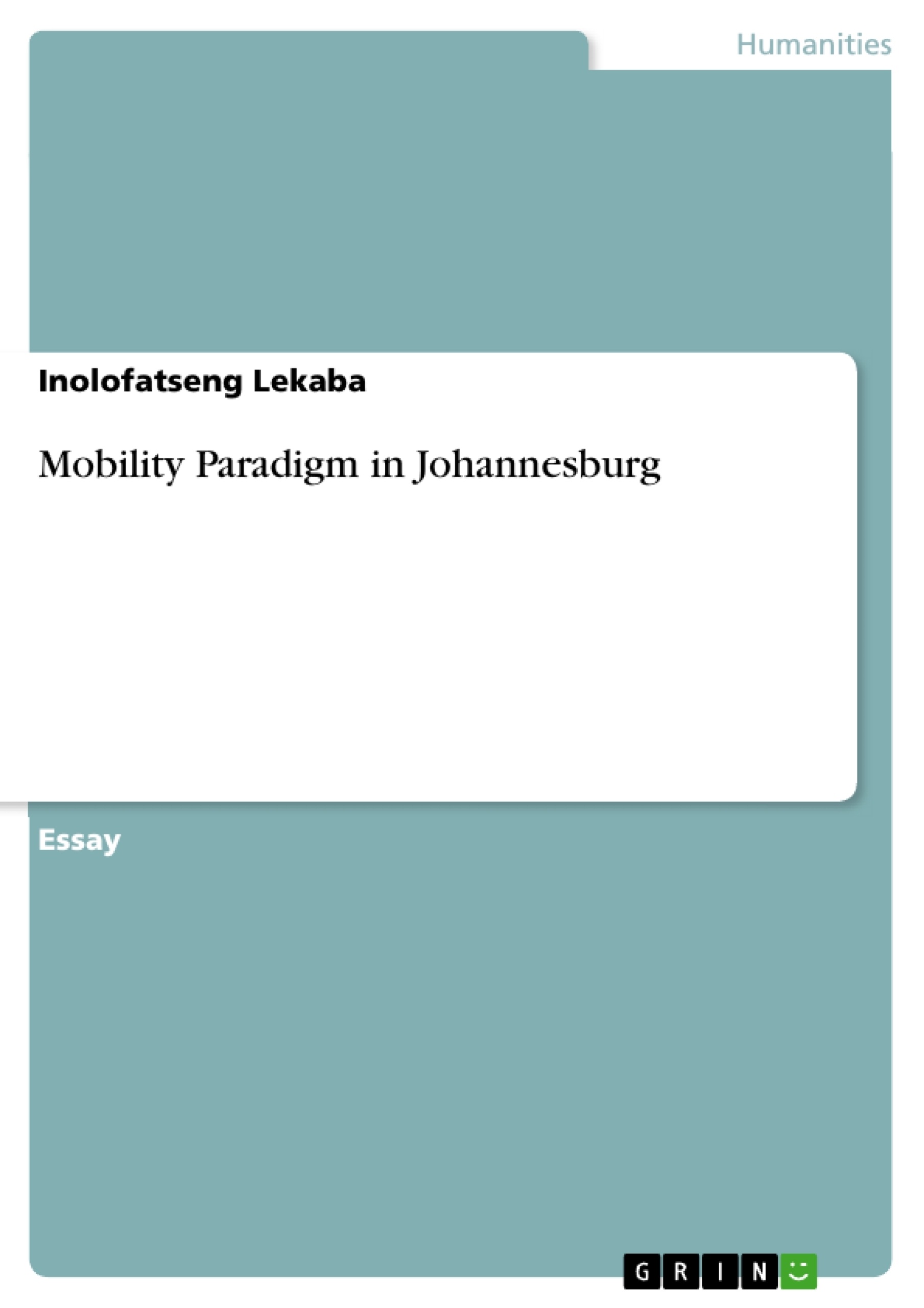Abstract or Introduction
Racially shaped mobility patterns in South Africa date back to the colonial and apartheid eras. Apartheid as an oppressive system of social engineering through spatial segregation confined the mobility of black people. The mobility of white people was encouraged and facilitated more so in ‘white’ spaces or those spaces deemed too good for the black majority. The persistence of the apartheid space economy in the post-apartheid city implies that although mobility is no longer restricted by harsh laws, it is limited by economics and politics of the stomach. However, inter and intra-city mobility of black citizens has sharply increased with the dawn of democracy and so has the influx of migrant populations into these postapartheid urban spaces.
Against this backdrop, this essay will illuminate the processes that have influenced the production of post-apartheid Johannesburg. The theoretical framework of this paper is the mobility/fixity theory supported by Lefebvre’s ‘production of space’. The paper seeks to zero in on the two most prominent displays of mobility/fixity in the production of space as it relates to Johannesburg; these are the ‘white flight’ of the 1980s and ‘Africanisation’ of the postapartheid city.
- Quote paper
- Inolofatseng Lekaba (Author), 2016, Mobility Paradigm in Johannesburg, Munich, GRIN Verlag, https://www.grin.com/document/511827
Publish now - it's free






















Comments